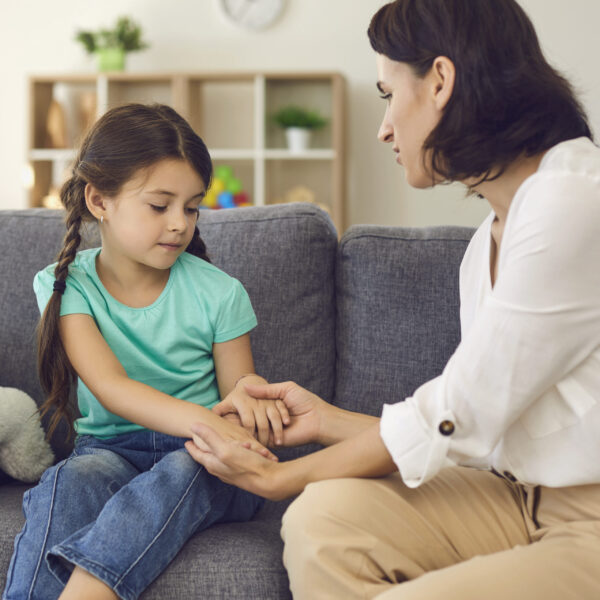Parenting on a normal day can be hard enough. But parenting while going through a divorce—even when it’s amicable—is a whole other challenge. One your children will likely have a lot to feel and say about.
On behalf of all parents who can relate, we turned to Dr. Bob Saul, a Professor of Pediatrics (Emeritus) at Prisma Health in Greenville, South Carolina. He offers some practical guidance based on his more than 40 years as a pediatrician.
Question: Many parents want to help their kids through divorce, but don’t always know how. They recognize that serious tension between mom and dad is present, whether it’s said or unsaid. What advice can you share with parents, whether they’re just starting to separate or in the middle of the legal process?
Answer: I am so glad when any parent is concerned about the children and their reaction to this situation. Even though divorce is very common, that does not diminish the difficulties that children can have with the adjustment.
Multiple books have been written on the subject and can be of great help as you go through this process. Let me highlight some key principles that you and your mate need to keep in mind, for the sake of the children.
I realize that every situation is different, so the following points are general.
- Always be honest with the children. They don’t need to know specific details, but they can certainly process things like “we are just having problems getting along. We want the best for you and to do that, we need to be apart. We can both do a better job for you if we are not together.”
- Do not put children in the middle of any disagreement. They should never have to feel that they need to take sides.
- Do not argue in front of the children.
- Remind the children that this is not their fault and that they did not cause this.
- It is very common for children to feel silently guilty.
- Be sure to spend time in a quiet rational way (without distractions) to explain the divorce. At first you might do it in front of all three children, but I suspect that one-on-one discussions will be needed later. Each child needs to feel that they can express their feelings.
- Do not criticize the other parent in front of the children. You do not have to profess false love, but avoid being critical. This often forces the children to take sides.
- If you have specific concerns about the children to be shared with the other parent, do it in private where the children cannot hear you.
- Be patient with your children. Expect a barrage of questions. No question is too trivial. Questions about living arrangements, finances, schools, activities and friends will be at the forefront of the children’s minds. Be frank but supportive. Do not overpromise or be too negative.
- Do not let the grandparents undermine your efforts. Please emphasize your plans and the need for them to stick to them.
- Try to maintain a routine as much as possible. Visitation and/or custody arrangements should be fairly well maintained so children can have reasonable expectations.
- Seek professional help if you have any questions about how the children are doing. They more than likely might need some assistance.
- Divorce is also tough on the parents. Seek assistance yourself (trusted friend, pastor, counselor or mental health professional) when you need it. Your pediatrician can help assess the overall situation for both parents and children.
- Know that the effect of divorce does not just fade away. It will linger and flare up at times. Sibling relationships might change and vacillate. Allegiance to parents might also vary, and it is important not to take personal offense if that happens. Expect emotional swings in your children and yourself.
As with any transition, try to be extra kind to yourself. If possible, lean on safe, caring people in your life. The more support you have for yourself, the better you can be there for your kids and grow together.
Read more: “5 Things to Consider for Successful Co-parenting“





